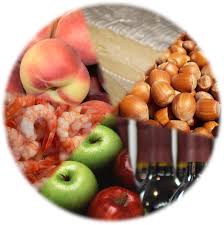Increasing levels of food insecurity, and higher costs of food ingredients during the COVID-19 pandemic is having a substantial impact on the global allergen free food market. To address these concerns, governments have increased the flexibility of their food and nutrition service programs, which is aimed particularly towards the low income group.
The worldwide allergen free food market is expected to cross a US$ 75.67 Bn valuation during the assessment period between 2020 and 2030. On the other hand, regional lockdowns, major disruptions of supply chains, and rampant stockpiling behavior by consumers are key factors that will impact market players in the months to come, as the world continues to struggle with the coronavirus crisis.
“Rising levels of health awareness among consumers and medical advances associated with human immune system is increasing the demand for allergen free foods. With the inaccurate perception of food safety, allergen free foods are witnessing unprecedented demand from consumers. This creates undue pressure on manufacturers and retailers in terms of inventories and supply chains. Demand is likely to stay strong even after the outbreak subsides,” states the FMI analyst.
Allergen Free Food Market- Critical Takeaways
- Dairy and gluten free foods remain highly sought after, contributing substantially to market revenue, owing to widespread prevalence of lactose intolerance and celiac disease.
- Processed food and milk product manufacturers are generating major remunerative opportunities in the industry, with the growing popularity of convenience foods.
- Conventional allergen free foods account for most sales, owing to lower costs. However, health awareness among consumers is generating demand for organic variants.
- North America and Europe are leading producers and consumers of allergen free foods. However, Asia Pacific will gain ground with evolution in consumer preferences.
Allergen Free Food Market- Drivers
- Rapid advances in medicine with regards to allergies and immune responses generates opportunities in the development of allergen free food products.
- Consumer awareness, particularly about diary and gluten allergies, and growth in disposable incomes supports market growth.
- Strong consumer bias towards clean label practices is also contributing to allergen free food market growth.
- Strict government regulations associated with ingredients and food safety support quality standards in the market.
Allergen Free Food Market- Restraints
- Higher costs of allergen free foods in comparison to conventional variants is set to hold back sales.
- Lack of awareness about allergies and associated health conditions in developing economies of Asia and Africa will hold back market growth.
COVID-19 Impact on Allergen Free Food Market
With the coronavirus pandemic, consumers have focused their efforts towards stockpiling grocery staples in amounts that are substantially larger than the norm. With inadequate supplies of conventional foods and disruptions in supply chains, allergen free foods have also been impacted by the changes in consumer behavior.
Online distribution channels and delivery services have gained massive importance during the crisis. In addition, manufacturers have substantially increased their production capacities, and have ramped up delivery schedules with the help of government policies, which designate these businesses as essential. Demand for allergen free foods will dip gradually post the outbreak to reach pre-coronavirus levels in 2021.
Competitive Landscape
Manufacturers in the partially fragmented allergen free food market are pushing for the development of new products, which in addition to being allergen free, are also nutritionally balanced. For instance, Cadbury has announced plans to release a dairy, and gluten-free vegan variant of Dairy Milk chocolate. Similarly, Nestle has acquired a stake in Before Brands to bolster allergen free food product porfolio.
General Mills, Dr. Schar AG/SpA, Cadbury, Conagra Brands Inc., Mondelez International, Nestle, and Danone S.A. are some of the leading allergen free food producers.
Press Release Source: https://www.accesswire.com/594185/Evaluating-the-Coronavirus-Impact-Disruptions-in-Supply-Chains-and-Stockpiling-by-Consumers-Generate-Allergen-Free-Food-Shortages–Future-Market-Insights




